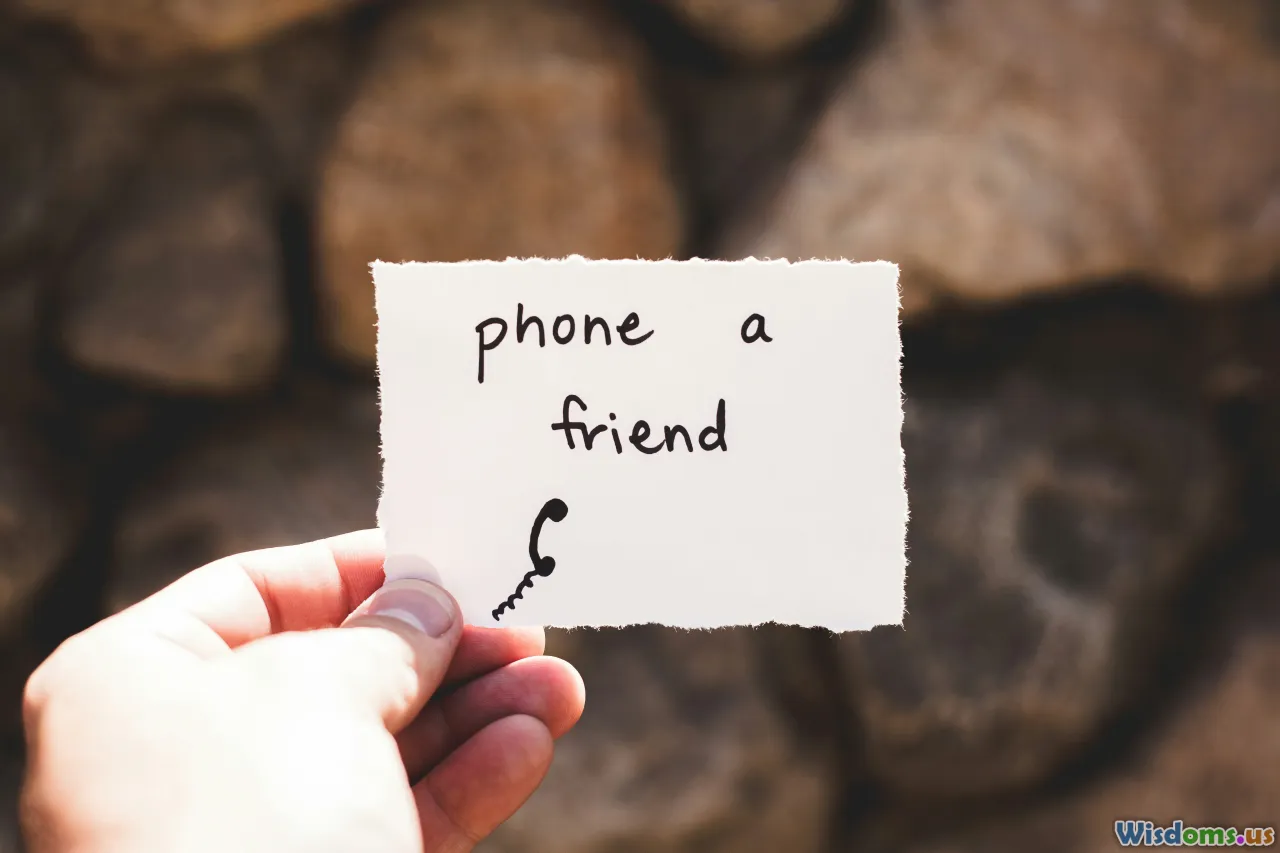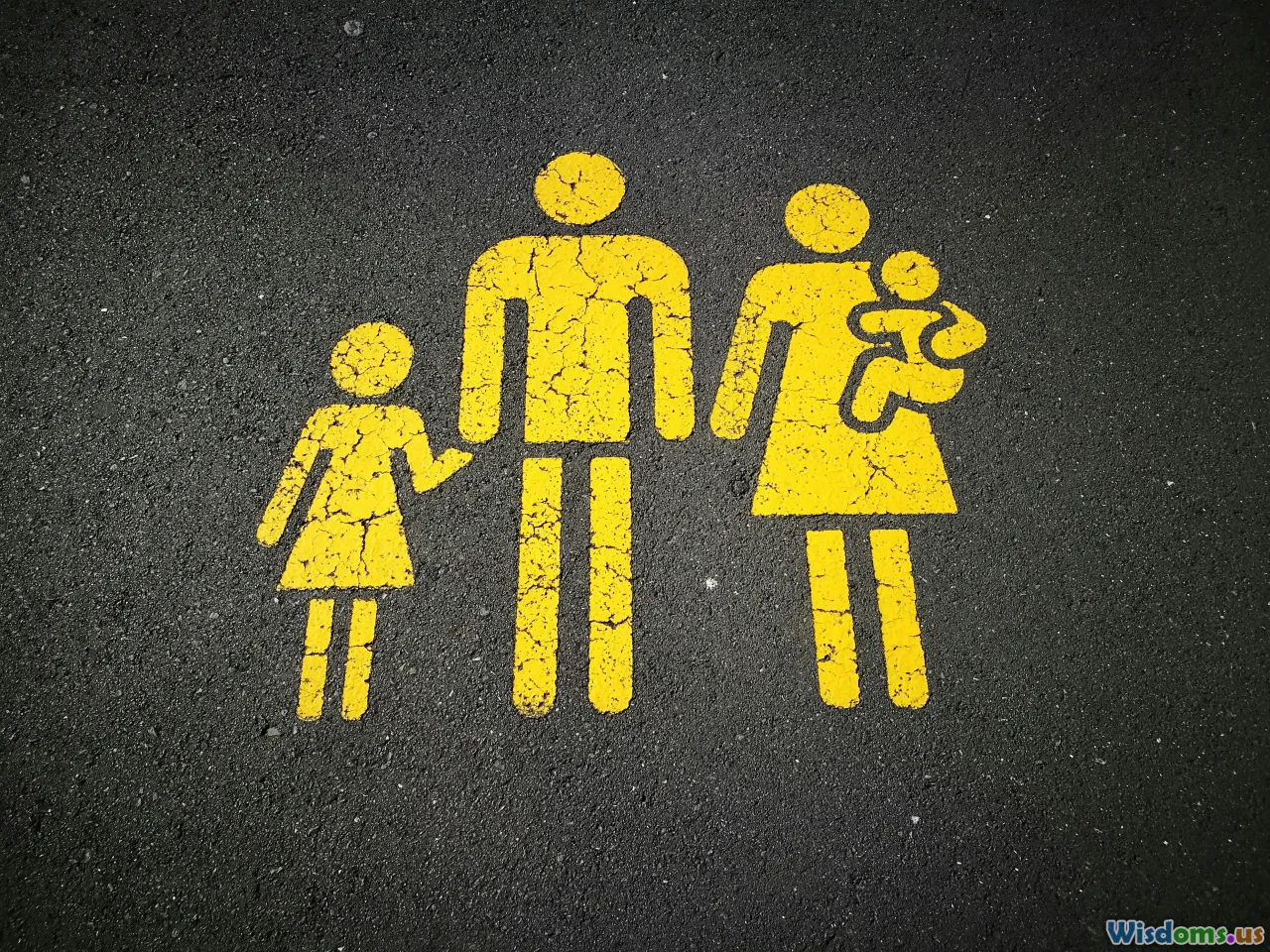
Real Life Stories of Relationship Conflict Turnarounds
16 min read Inspiring real-life stories where couples and families overcame relationship conflict and turned challenges into stronger bonds through communication and understanding. (0 Reviews)
Real Life Stories of Relationship Conflict Turnarounds
Conflict in relationships is often perceived as a sign that things are falling apart. Yet, if handled correctly, these struggles can become gateways to deeper understanding, trust, and genuine transformation. Across workplaces, families, friendships, and romantic partnerships, countless individuals have discovered unconventional paths to harmony. Let’s delve into profound real-life stories of conflict and the strategies that led not only to peaceful resolutions but also to stronger bonds.
A Work Partnership on the Brink: Embracing Vulnerability

Carl and Jenna, co-founders of a tech startup, hit breaking point after months of simmering tension. Creative decisions morphed into heated arguments. "Every Monday, my stomach sank," Carl recalls. The company reached a standstill, threatening the jobs of their dozen employees and the vision they'd built together over late nights.
What Changed the Course?
Jenna proposed an unconventional solution: they brought in a mediator specializing in workplace dynamics. Surprisingly, under the mediator’s guidance, they weren’t asked to negotiate business strategy first. Instead, the mediator encouraged each co-founder to share personal stories and the values driving their decisions.
This vulnerable exercise helped Carl understand that Jenna's insistence on fiscal discipline stemmed from an underprivileged upbringing, not stubbornness. Jenna realized Carl interpreted fast growth as validation of his career shift from a stable job, not recklessness.
Actionable Takeaway
- Address underlying motivation: In moments of deadlock, stop the tactical debate and ask, "Why is this important to you?"
- External facilitators encourage openness: A third party can shift the tone from adversarial to collaborative.
Their company rebounded. Not only did Carl and Jenna renew their partnership, they built a new approach to problem-solving for the whole team, fostering a collaborative culture admired even by competitors.
Siblings Reconciling Over an Inheritance Feud

Disputes over family inheritance can fracture siblings for a lifetime. The Nguyens, four siblings from Tampa, faced exactly this when their parents passed. Years of unequal attention resurfaced as accusations over who "deserved more." Communication was cut, with lawyers negotiating on their behalf.
Turning the Tide with Storytelling
Their eldest sister, Linda, suggested a radical group meeting with a family counselor. Each sibling, in turn, narrated memories of parents and past hurts. The exercise shifted the conversation from cold, legalistic terms back to shared family history. “I realized how I had resented my younger brother for something our father did, not him,” Linda notes.
In the safe space, tears flowed. Resentments that could have festered for decades were named and mourned. The inheritance was eventually split more equally than any lawyer could manage, but more important was the real gift: siblings reunited for holidays and supported one another through marital strife and illness in the subsequent years.
Key Insights
- Prioritize relationship over assets: Remind everyone of the true stakes—the future of the family, not just the money.
- Storytelling repairs empathy: Factual disputes often mask wounded feelings. Processing shared history can defuse long-held resentments.
A Marriage in Trouble: The Power of Radical Listening

Maria and Dylan’s decade-long marriage had turned into cycles of blame. According to Maria, Dylan “never listened.” Dylan felt Maria “made everything his fault.” Separation loomed until they attended a relationship workshop focusing on radical listening—a technique where each person’s main job is to mirror and validate, not judge or problem-solve.
Experiencing Radical Listening
In practice, this meant suspending rebuttals. Dylan would listen, then summarize Maria’s feelings (“I hear that when I come home late, you feel alone and worry I don’t care.”) After months of this practice, they found themselves having fewer explosive arguments.
- Research Supports This: Couples using active empathy techniques have been shown to resolve issues faster and experience higher satisfaction (Journal of Marriage and Family, 2019).
- Development of Emotional Vocabulary: Both partners developed a richer language for emotions, reducing misunderstandings.
Maria notes, “Feeling heard changed everything. Even when we disagree, it’s not war—it’s problem-solving.”
Tips for Implementation
- Set a timer: Each partner speaks uninterrupted, then switches roles.
- Use reflective statements: Start with “I hear that…” instead of counterpoints.
- Attend a session: Even a single workshop can introduce new habits.
Colleagues Resolving a Decade-long Rivalry

Helena and Sam, both engineers in a high-stakes automotive company, were infamous for their open hostility. Collaboration was reduced to terse emails, projects stagnated, and junior team members felt forced to "choose sides."
Workplace Experiment: Swap Roles
A new manager, sensing lost productivity, convinced both to swap responsibilities on a major initiative. The immediate effect was discomfort—mistakes happened, but so did revelations about the challenges each faced. Helena admitted, “I realized he wasn't slowing things down on purpose—his workload was on another level.” Their increased respect deescalated the feud, and they began to share resources rather than hoard them.
By the following year, their joint project won the company's annual innovation award.
Lessons for Professionals
- Empathy via experience: Walking in another’s shoes, even briefly, dissolves villainous caricatures.
- Management intervention works best early: Address long-term feuds before they calcify.
- Recognize team impact: Leadership must notice and address unhealthy dynamics, as bystander forebearance entrenches conflict.
Long-Distance Friendship Saved by Honesty

Lydia and Rose, best friends since university, grew apart after settling in different continents. Miscommunications—missed messages, late replies—mutated into feelings of abandonment.
Harnessing Brutal Honesty
Instead of letting the friendship quietly fade, Lydia sent a lengthy message outlining her hurt and missing the closeness they once shared. Rose responded with equal honesty, voicing stress about balancing a busy new job with maintaining their old friend circles.
This candid communication “reset” their expectations. Rather than exchanging fleeting texts, they planned monthly video chats and occasional in-person meet-ups. Both recognized the need for grace around delayed replies, focusing instead on the joy of reconnection.
Strategies for Reviving Distant Bonds
- Direct address of needs: Explicitly state what’s changed, what you hope for.
- Plan structure: Rely less on organic moments and more on scheduled calls or events.
- Forgive lapses: Life can get hectic; lasting friendships need compassion.
Partnering Through Parenting Disagreements

Naomi and Greg clashed repeatedly over discipline styles for their young son. Naomi favored gentle negotiation; Greg preferred clear boundaries and consequences. The disagreements left their son confused and often led to arguments in front of him.
Collaborative Parenting Workshops
They attended a parenting course structured around the latest research in family systems. Exercises included listing shared parenting values, designing consistent family rules together, and practicing conflict discussions in front of the group.
Research in the Family Relations journal suggests co-parenting cooperation predicts both parent and child happiness outcomes. After the course, Chris, their son, thrived under the clarified approach, and Naomi and Greg felt more united, lessening the friction at home.
Parent-to-Parent Tips
- Invest in joint education: Workshops can create common ground.
- Agree on a conflict protocol: When disagreement flares up, move the discussion away from children.
- Articulate non-negotiables: Determine which values are essential before discussing tactics.
Reconnecting After Betrayal Among Friends

Betrayal can feel like an emotional earthquake among friends. Robbie slept with the ex-partner of his best friend, Alex, causing a public rift among their circle.
The Slow Road to Forgiveness
Robbie wrote a lengthy letter apologizing with full accountability. Alex did not immediately respond, needing six months to process. Eventually, via a neutral third friend, the two agreed to a face-to-face conversation. The message was not one of excusal but of acknowledgment and shared grief for the lost trust.
Through slow rebuilding—starting with neutral small group outings, then personal conversations—the friendship wasn’t quite restored to its old dynamic, but a respectful and even warm connection reemerged over time.
Insights for Navigating Major Breaches
- Immediate honesty followed by patience: Apology alone does not guarantee forgiveness. Push for nothing; allow space.
- Involve mutual friends with care: Third parties can mediate initial contact.
- Lowered expectations: The reconstructed relationship may look different but can possess new depth or respect.
Rebound After a Parent-Teen Standoff

The Lee family faced a crisis when 16-year-old Mel dropped out of school without warning. Her parents imposed strict restrictions, Mel pushed back by disappearing for days, and both sides felt unheard and resentful.
Family Therapy and Joint Agreements
A school counselor recommended multi-generational therapy. Sessions allowed Mel to articulate her struggles with academic anxiety. Her parents realized their "tough love" was misfiring, and that Mel's needs were not about laziness but crippling self-doubt.
The family worked out new expectations: re-enrollment in an alternative school, weekly family meetings, and therapy for Mel. Over two years, tensions eased, grades improved, and Mel’s confidence grew. Reconciliation didn’t mean eliminating all arguments, but conflicts now led to solutions, not stonewalling.
Advice for Families in Conflict
- Find outside guidance: Neutral professionals break cyclical arguments.
- Shift from punishment to partnership: Co-construct solutions rather than impose them.
- Focus on wellbeing first: Achievement follows mental health.
When Values Collide: Roommates Forging Respect

Sara, from a conservative religious background, moved in with Jo, a vocal activist for gender diversity and LGBTQ+ rights. Early camaraderie soured after heated debates over politics and social issues, making communal meals awkward.
Building Boundaries and Shared Space
Rather than seeking to convert the other, both roommates drafted a "roommate charter"—explicit rules for respectful debates, private space, and consensus on shared responsibilities. Sara and Jo intentionally scheduled "neutral nights"—evenings with no political talk, just teamwork on life’s practicalities. Jointly hosting a charity brunch fostered collaboration on values they shared, even if coming from different places.
By graduation, while neither person shifted core beliefs, both broadened understanding and forged a respectful bond, with lasting skills for difficult dialogues.
Takeaways for Shared Living
- Formalize expectations: Rules and rituals prevent friction.
- Practice coexistence over consensus: Full agreement isn’t the goal; mutual respect is.
- Find common ground: Volunteering together or sharing neutral hobbies boosts rapport.
Epilogue: Beyond Surviving Conflict
Every conflict, no matter how dire it seems, holds lessons and opportunities for new beginnings. The paths to reconciliation can be unconventional: radical listening, role reversal, third-party intervention, conscious boundary-setting, or shared storytelling. These real-life transformations show that while scars may remain, relationships can evolve to become unexpectedly resilient. In the echo of once-heated arguments, the seeds for stronger, more empathetic connections are often sown—and, with courage and care, those seeds can flourish for years to come.
Rate the Post
User Reviews
Other posts in Conflict Resolution & Problem Solving
Popular Posts















